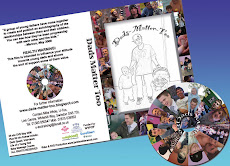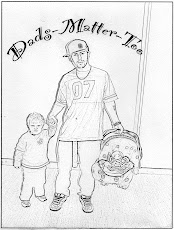Today’s edition carries two great articles. On p36 “Boys don’t suddenly become men at 18” describes the work of A Band of Brothers, a Brighton-based mentoring project which links older local men with disaffected young men, helping them in the transition to manhood. If this sort of programme could be rolled out nationwide, it might help ameliorate some of the issues faced by the 500,000 families we’re suddenly reading about.
Wednesday 28 March 2012
Good for The Guardian
Posted by
Mike
at
17:37
0
comments
![]()
Friday 23 March 2012
Early Intervention
It looks like a Guardian journalist might be on our side. In yesterday’s edition, Suzanne Moore said, “we need to target children we try not to see, but who live among us, who are deeply neglected.” Of course it would be even better if we could avoid having to target such children by preventing that need by intervening earlier in the lives of their parents.
Posted by
Mike
at
12:38
0
comments
![]()
The Teenage Pregnancy Myth
Keen readers of this blog will be aware that Graham Allen’s Early Intervention review contained the word ‘mother’ nearly 8 times more than the word ‘father’. Radio 4’s programme on Monday, The Teenage Pregnancy Myth, went rather better. The words ‘mother’, ‘motherhood’ and ‘mum’ were mentioned 65 times, the word ‘father’ only 3 times, with the familiar ‘feckless’ adjective being attached to one of these. And a mother of a teenage mother was interviewed, but not the father.
Posted by
Mike
at
08:53
2
comments
![]()
Sunday 11 March 2012
More media dad stuff
Posted by
Mike
at
11:17
0
comments
![]()
Dads Matter Too - the DVD
Posted by
Mike
at
10:58
0
comments
![]()
Thursday 8 March 2012
Behavioural institutions for five year olds
The perils of reading the Mail Online ... its education correspondent has written a piece about a report written by the government’s ‘behaviour tsar’, according to whom, “Children at risk of descending into a life of crime and aggression can and should be identified at the age of two ... His report is expected to be accepted by Education Secretary Michael Gove today.”
The article, which can be found at:http://www.dailymail.co.uk/news/article-2111844/Children-age-TWO-lessons-anger-management-contain-themselves.html#ixzz1oWUljrO3 fails to mention the circumstances through which two year olds could acquire such behaviour traits. Those of us who believe in the value of (very) early intervention and think that prevention is better than cure - and possibly cheaper - might feel that the correspondent, and Mr Gove, is missing something.
Then again, perhaps we shouldn’t believe all we read in the press.
Posted by
Mike
at
11:20
0
comments
![]()




